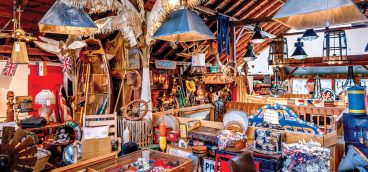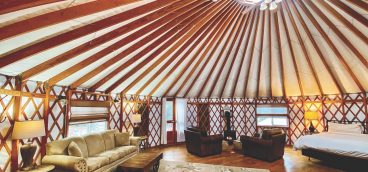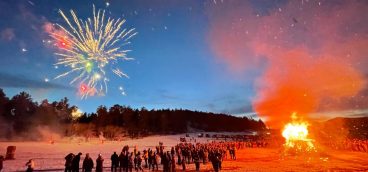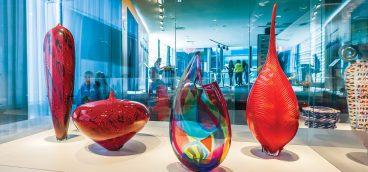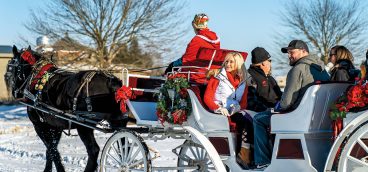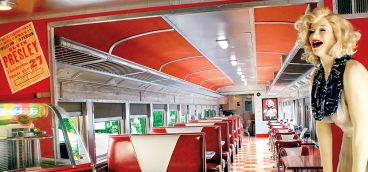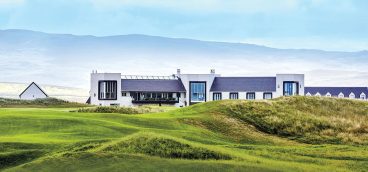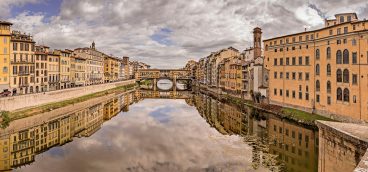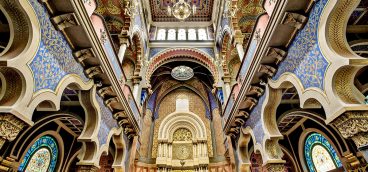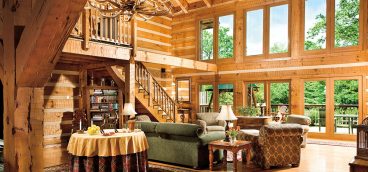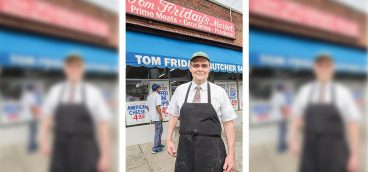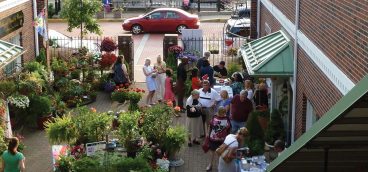Two Pittsburghers on the Road Less Travelled
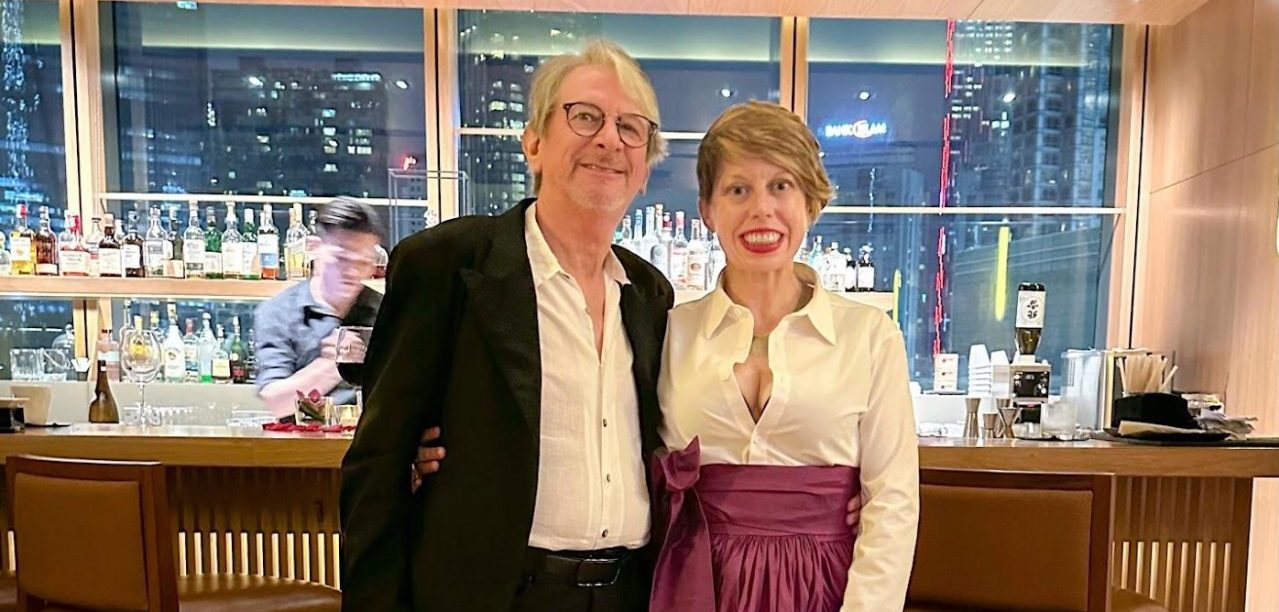
Even though we’ve been married for 15 years, Jessica and I converse. Usually, the exchange of thoughts happens as she drinks her morning tea and I, my coffee. The following comments are typical of what you might hear were you an early-rising fly on the wall of our living room.
“There’s a new Asian restaurant opening soon in the Strip District that looks really interesting.”
“I can’t believe the Steelers didn’t start Pickett earlier in the season.”
“The Mattress Factory Garden Party had over a thousand people this year and the photos are amazing.”
“Sidney Crosby is an artist on skates.”
“So, Beetlejuice: The Musical is coming to the Benedum. That sounds like a fun show.”
Suffice it to say that our chats about the Pittsburgh-area goings on are not much different from those of many others in the region. The difference with us is that we have not lived in Pittsburgh in a decade.
As I write these words, I’m watching the daily thunderstorm dump tropical rain on the sprawling metropolis of Kuala Lumpur, Malaysia. The downpour will briefly freshen the air and rinse away the coughed-out pollutants from the cars and motorbikes that clog the roadways. It is the best time of the day here in KL.
So how did we get here?
In 2013, Jessica and I quit our corporate jobs in Pittsburgh and moved ourselves and a bunch of our stuff to a little olive farm in Southern Italy that we had bought. After having conducted a major restoration of the property from the inconvenience of 5,000 miles distance, we thought that we had “Americanized” the place sufficiently to make it livable. The luxuries we added included a second bathroom, central heating, increased electrical capacity and a water heater capable of producing enough hot water to bathe a herd of wildebeests. We even violated our village’s protocol and installed a clothing dryer. We weren’t sure if that particular blasphemy was noticed by our curious neighbors, or if they just thought that we never washed our clothes. And, though we thought that we had taken enough of America with us to make the place feel like a not-so-foreign country (even though it was), a few things escaped our planning.
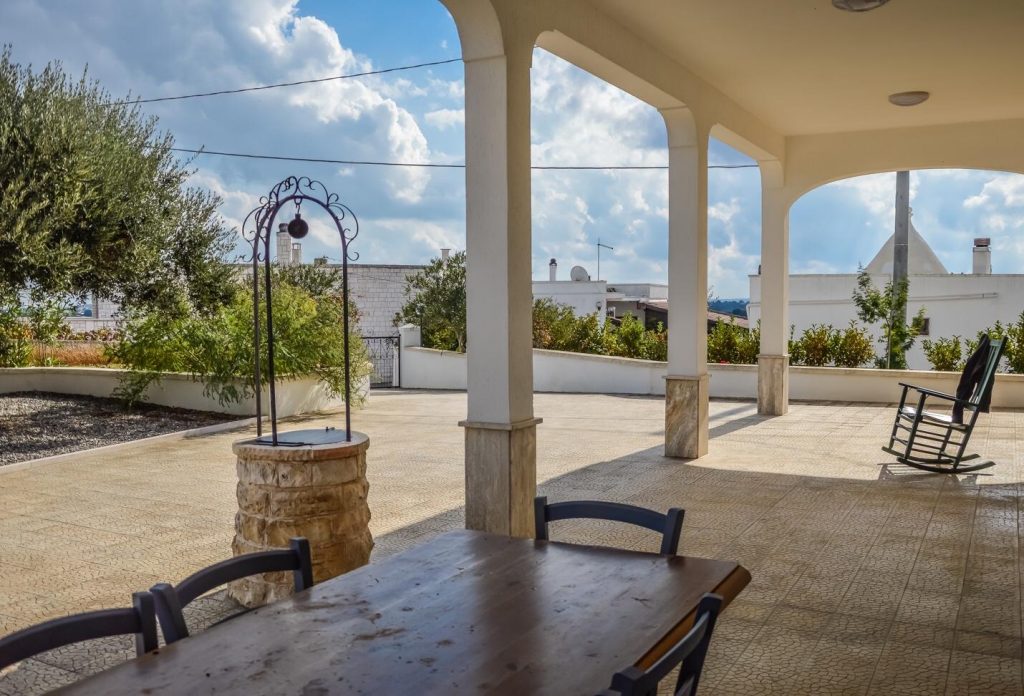
I suppose we were a bit remiss by minimizing the language thing. It turns out we were the only residents of Marinelli, the tiny village in which our olive farm was set, who spoke English. No dummy me, I studied the Italian language, achieving a level of proficiency where I could wish someone good day, tell someone where the nearest bathroom was and ask, “Dude, where’s my car?” Not too bad for an Americano. The problem was that the locals spoke a dialect called Cisternese which is about as similar to Italian as an avocado is to an avvocatto (Italian for lawyer). It didn’t make it any easier for us to fit into our little community that everyone else was related to one another to one degree or another.
Then there was the vaunted, infamous and ever-present Italian bureaucracy. Whatever you may have heard about the Italian government’s talent in being able to crush ambition, stifle productivity, reward sloth, and punish beneficial acts, well, believe it. Apparently, our desire to live in the country, provide work for the people we hired, spend our money in shops, restaurants, petrol stations, pay for utilities, pay taxes, etc., constituted the commission of some grave sin because each year when we had to ask the government for a visa to remain in Italy for another year, we were treated as if we had been caught peeing in the Trevi Fountain on Easter Sunday. Every time we went through the process, the rules changed; each time we dealt with a different immigration agent, the rules changed; if the immigration agent had a fight with his wife that morning, the rules changed. And when we asked, “Why?” the answer was, “Because I say so.” So much for a warm welcome.
I’ll admit that it was spiritually and culinarily rewarding to press the olive oil from fruit grown on our own trees and taste what genuine, unadulterated, fresh olive is. The problem is, the trees are on a farm and farming is hard — back-breakingly, bone-achingly, muscle-spasmically hard! After a career that mostly involved moving pieces of paper from one side of my desk to the other, tasks like pruning, weeding, clearing brush, laying irrigation tubes, not to mention the grueling 12-hour days of the harvest, I decided that I was much more suited to an encore career of writing.
Finally, there was the weather. There we were in Puglia, Italy’s deep south, the “heel of the boot,” surrounded by the Mediterranean Sea. Yeah, we thought it would be warm year-round, too. Not so. On our first December 31st in Italy, we awoke to 30 inches of snow. Once in a 100-year storm, they said. It never snows here, they said. Well, it did snow, again and again. To further complicate matters, the homes in Puglia are not built to keep cold out or warm in, and energy in all of Europe is very costly as compared to the U.S. Many was the night we spent watching a movie, wrapped in blankets and wearing socks that we didn’t take off when we went to bed.
After our second winter there, the epiphany struck: this just ain’t working.
So, what to do now? Going back to the States was not on the list. Traveling throughout Europe from our home base completely ruined us. Quick flights to London, Paris and Berlin; a drive to Rome, Florence and Venice; train trips across Germany, Switzerland and Spain; we did them all and we had no inclination to stop seeing the world. Where do we go to avoid the problems we encountered in Italy but still satisfy our other needs and wants?
Wait, what actually are our needs and wants? We made a list. Needs included (1) a “summer-year-round” climate; (2) good public transportation since we did not want to own a car anymore; (3) English commonly spoken; (4) a relatively painless visa program that would allow us to come and go as we chose; (5) affordability such that we could live comfortably and satisfy our travel habit; (6) access to quality healthcare. Nice-to-haves were (1) quick and easy access to an international airport; (2) a variety of cuisines; (3) good wines at good prices.
And where might we find a place that offers all of these things? After exhaustive research, I can unequivocally state that such a place does not exist.
In the fall of 2015, I could not have told you where Malaysia was. And, if you had asked me where Kuala Lumpur was, I probably would have pointed to somewhere in Africa. But when we did the research that formed the basis of the decision of where we should set up our new home, Malaysia checked more of the items on our list than any other place we could find.
At just a few degrees north of the equator, the temperatures barely fluctuate, the weather variance being the rainfall. And, thanks to the British colonialists, English traditions and the language are deeply rooted in the Malaysian culture, at least in the cities. The Malaysian visa program called MM2H (Malaysia My Second Home) was one of the best of its kind in the world for retirees, offering a 10-year visa on very reasonable terms. Although we considered other parts of Malaysia to live, we quickly decided that Kuala Lumpur, Malaysia’s largest city, was the place for us, as it allowed us to be comfortable without the need of a car. Living expenses were much lower than those for comparable accommodations in the States, healthcare is readily accessible and to Western standards, and the KL International Airport has direct flights to most major locations in Asia and the Middle East and a number of cities in Europe. The only box that goes unchecked is wine at good prices. Wine is expensive in KL but, hey, that’s life.
Of all the things Kuala Lumpur had on offer, the one we took greatest advantage of was access to most of Asia by way of KL International Airport. Within a month of taking residency in our over-sized, under-priced apartment, we headed off to Myanmar (aka, Burma) and the cities of Yangon and Bagan. Several weeks later, we joined a group heading to the Himalayas to do relief work following the devastating 2015 earthquake.
Trips to Thailand, Laos, Vietnam, Cambodia, India, Sri Lanka, China, Japan, Australia and New Zealand followed in relatively short order. AirAsia, a low-cost carrier based in KL, an affordable if uncomfortable airline, covers most of the Asian market and makes the frequent travel at least easy to plan. Jessica honed her photography skills to a scalpel-sharp edge so our adventures came home with us in the form of her photos. And pictures of the two of us have, no doubt, ended up in the collections of many of the locals we ran across since we were mobbed in such places as Myanmar, Laos and India by locals wanting their photo taken with us. We felt like Brangelina.
Among the places we visited from our base in KL was the Indonesian island of Bali. Jessica had taken a deep interest in yoga and Bali was reputed to have one of the world’s most recognized centers for the study of the art in a town called Ubud. After a number of visits, each one a bit longer than the last, we took the plunge and moved there. Jessica’s creative energies were charged by the visual stimuli found in the Balinese traditions and lavish Hindu ceremonies and her thirst for learning was more than satisfied by the multitude of yoga, meditation, and other spiritual sessions offered in town. I was stimulated to write by the active arts community and the abundance of personal stories of people from across the globe who somehow found themselves and found themselves in Bali, determined to experience their own “eat, pray, love” moment.
But, as we had already concluded, there is no one place Edenic enough to meet all of our desires. Life in the jungle presented our American sensibilities with some challenges, the critters that co-habitated the place among them. We didn’t mind the geckos so much as they feasted on the Dengue fever-bearing mosquitos that enjoyed feasting on us even more. The cobras and field mice were another story. And you definitely don’t want to be in need of serious medical care in Bali because. So, after three covid-clouded years, we retreated to the comforts and conveniences of the city, back to KL, where we continue to this day to pillow our heads.
Still, hardly a day passes that some Pittsburgh notion interrupts our Southeast Asian sojourn. Those notions are not so hard to find. Just tell a local Grab (our version of Uber) driver that you’re from Pittsburgh and the response is likely to be, “Oh, the Steelers, right?”

